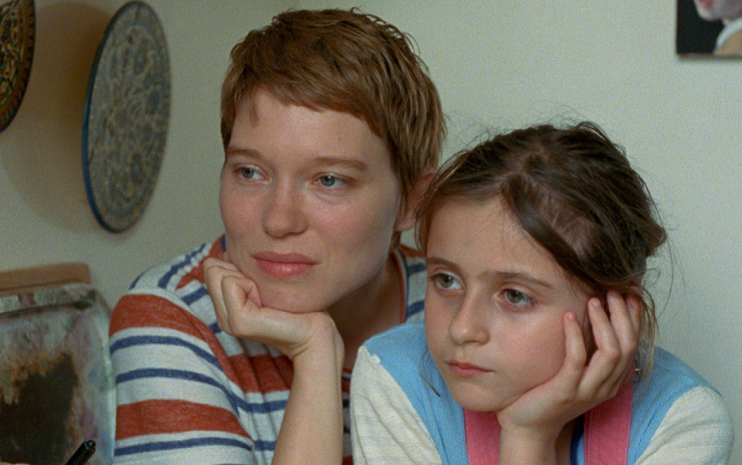One Fine Morning, film review: Lea Seydoux’s Parisian portrait lacks focus
Léa Seydoux, aka Dr. Madeleine Swann in Spectre and No Time To Die, is a fine actor with huge range. She’s immensely watchable in One Fine Morning, whether she’s casting a flirtatious eye across a road or acting the repercussions of a heart-rending break up, and in ponderous new drama One Fine Morning she gets to do both.
It’s an enjoyable, if slightly underpowered and overlong, piece by writer-director Mia Hansen-Løve, who won the Best European Film award for this at Cannes 2022. Seydoux plays Sandra, a young widowed mother who’s forgotten how to have sex as it’s been so long and in the meantime, is also dealing with her father’s memory loss, who was a lauded professor and pillar of the community.
Hansen-Løve’s film gets at how tiring all this must be through a couple of beautiful performances, not least Seydoux’s, who channels the complexity of Sandra’s loneliness. Hansen-Løve’s writing gives her plenty to work with, avoiding tropes; it’s empowering to see Sandra and her partner Clement’s relationship never be anything other than honest, no matter the outcome of that honesty for either party. Pascal Greggory, a household name across the Channel, has an interesting take on playing memory loss, conveying nonchalance about big life decisions (being moved out of his flat, for one) rather than anger at his loss of power, or the later stages of unawareness.
There’s also a beautiful selection of environments which show Paris off in the winter. The bitter air is a cleverly grim choice of mise-en-scene as Sandra tries to manage her angst and longing.
It is a tender portrait, even if the duality of both storylines dilutes the potency of them individually somewhat. It’s partly because Melvil Poupaud’s Clement feels a little like a two-dimensional male baddie, unable to commit to either of the two women in his life. Perhaps he is actually that, and that is Hansen-Løve point. But the script doesn’t quite bring him believably to life. One Fine Morning might have committed to both storylines a little further and lost a few of the beautiful, through meandering, shots of Seydoux looking perplexed to have lent a little more structure.
Read more film reviews at City A.M. Culture

